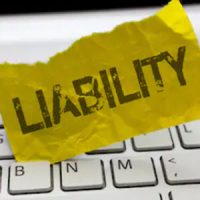Defending South Texas Slip and Falls

Slip and fall incidents are among the most common sources of workers’ compensation claims in America. In fact, according to the National Floor Safety Institute (NFSI), they account for 11 percent of all work-related hospital visits for men, and over 8 million people are treated at the emergency room every year, due to falls. With slip and fall injuries being such a significant source of insurance claims, it is worth noting that there is also a lot that can be done to reduce risk and minimum exposure to payouts once a claim is brought. It starts with a good risk management plan and hiring the right insurance defense law firm to protect your business.
Understanding Premises Liability in Texas
A premises liability claim arises when someone is injured on someone else’s property and claims that the injury was:
- Preventable
- Foreseeable
- Due to the property owner’s negligence
But when it comes to proving that negligence, there are different types of outcomes depending largely on the relationship between the injured individual and the property owner. The more mutually beneficial the relationship, the greater the obligation or legal duty owed by the premises owner (or company in control of the premises). Determining that relationship early is a big part of defending any action.
Three Classes of Claimant
Texas law, as with most states, breaks the groups down into three classes of injured plaintiffs. These are as follows:
Invitees. An invitee is someone who has been induced to come onto the property for some mutual benefit. The most common example of an invitee is a shopper in a store. The store has advertised to the general public, asked people to shop there, and arguably the store owner and/or property owner owe those shoppers a reasonable duty to keep the property in a safe condition, free of hazards and dangers. This means:
- There must be no unreasonably dangerous conditions
- The property owner or occupier cannot be aware of dangers and let them persist
- The property owner must take reasonable steps to promptly fix defects that could cause injuries
Licensees. A licensee is someone who is on the property for their own benefit, but not so much for the property owner’s benefit. Think of these as guests. They are allowed to be on the property, but the property owner just has to make them aware of the danger – not fix it. In particular, these tend to be uninvited solicitors, social guests, and people who are canvassing, as opposed to shopping. The only duty is to warn of dangers.
Trespassers. Oddly, even trespassers are owed a minimal duty. While a property owner has no duty to keep a premises safe or even warn of dangers, there is a duty to not intentionally or willfully harm a trespasser. There are a couple minor exceptions. First, if the property owner knows about the trespasser (often through past conduct), there is a duty to not harm them on purpose), and second, if the trespasser is reasonably believed to present a threat, a property owner is generally not liable for injuries that are inflicted while defending oneself or one’s property.
Getting the Right Help Matters
If your organization is facing legal threats due to slip and fall injuries in south Texas, it is crucial to work with a team that understands the nuances of Texas law. Let the Brownsville insurance defense attorneys at Colvin, Saenz, Rodriguez & Kennamer, L.L.P. help you reduce your risk and protect what you’ve built. Call us today or visit the firm online to get started.
Resource:
nfsi.org/nfsi-research/quick-facts/
